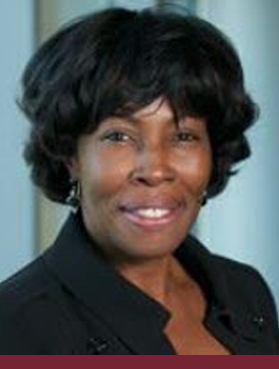
Written by Donna M. Fountain, PhD, APRN, PHCNS-BC
 By Donna M. Fountain, PhD, APRN, PHCNS-BC • May 25, 2022
By Donna M. Fountain, PhD, APRN, PHCNS-BC • May 25, 2022
Each year, the American Nurses Association (ANA) commemorates National Nurses Month in May to honor the varying roles of nurses and their unwavering commitment to patients, their communities and our healthcare systems. For 2022, the ANA has selected the tagline Nurses Make a Difference, with each week of the month-long nursing recognition focusing on the themes of self-care, recognition of fellow nurses, professional development and community engagement. To promote these themes, join us for a month-long TESU Blog series contributed by our nursing course mentors. Week 4 focuses on community engagement and the vital contributions nurses make in the health and well-being of our communities.
Growing up in Brooklyn, N.Y., I had the fortunate experience of living in a culturally diverse community of engaged residents, storekeepers, and public servants. I saw neighbors helping neighbors, friendly police officers who knew people by name, small business owners interested in the lives of their customers, and strong community block associations and school boards with active parent/teacher associations. Our family doctor, a general practitioner, even made house calls. Visiting nurses dressed in navy and gray or seersucker suits and carrying their nurse’s bags were seen in the neighborhood making at-home visits.
Today, those neighborhood memories have led me to engage in the community where I live, work, and play at the core of my role as a community/public health nurse. It’s in this community setting that I assess the needs of a patient, family, and population. As a provider of care, health educator and advocate, my public health nursing focus is on doing the greatest good within the society.
The community consists of geographic and demographic factors made up of places and people. A community population is bonded together by a common interest, purpose, mission, culture, and socioeconomic factors and/or challenges.
Nurses can make invaluable contributions to their communities. They play a vital role as leaders and make a difference in improving the community’s health. Nurses provide care all day, year-round, in community-engagement activities that may consist of volunteering; voting registration drives; taking part in a food drive, blood drive and clothing drive; and attending local town halls and school board meetings. Leveraging human capital resources builds strong communities.
Knowing your community is key to connecting with it. Meanwhile, developing a community presence is vital to trust-building and open communication. Learn who the local stakeholders and political leaders are so that you can achieve your desired outcomes. Network at community events, be culturally aware and speak in layman’s terms to help create strong connections and partnerships. I have seen nurses leverage social media – such as Facebook, Instagram, LinkedIn, Snapchat, Twitter, WhatsApp, TikTok, Reddit, Nextdoor and YouTube – to get essential health information effectively out to the public. When you find the best means of communicating with your community, you can be more effective in communicating health education or other messages.
Virtually or in person, it is important for nurses to become community-engaged whether informally, on a grassroots level, or formally, in an organization. Partnerships that build and sustain meaningful community action and intervention based on the needs of the community is the best way to develop positive health outcomes in population health.
Consider becoming civically engaged within your community. Join a nursing organization such as the American Nurses Association, the New Jersey League for Nursing (if in New Jersey or in your respective state) and one in your area of practice specialty, such as the American Public Health Association.
If you are unable to take part fully in a community organization, try volunteering at a faith-based organization, healthcare facility or nonprofit community agency. Your skills and knowledge are invaluable to them.
I challenge you to volunteer, make a donation and/or sponsor a student. Making a difference in the community is rewarding in numerous ways. Because when we help others, we receive a greater sense of well-being.

Written by Donna M. Fountain, PhD, APRN, PHCNS-BC